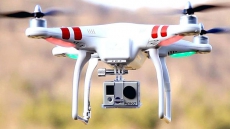Electronic learning - the use of electronic media and devices in education - is likely to be as effective as traditional methods for training health professionals, says a study.
Students acquire knowledge and skills through online and offline e-learning as well as or better than they do through traditional teaching, showed the findings of the study commissioned by the World Health Organization (WHO) and carried out by Imperial College London.
"e-Learning programmes could potentially help address the shortage of healthcare workers by enabling greater access to education, especially in the developing world," said Josip Car from Imperial College London.
According to a recent WHO report, the world is short of 7.2 million healthcare professionals, and the figure is growing.
For the study, the researchers carried out a systematic review of the scientific literature to evaluate the effectiveness of e-learning for undergraduate health professional education.
They conducted separate analysis looking at online learning, requiring an internet connection, and offline learning.
Combining e-Learning with traditional teaching might be more suitable for healthcare training than courses that rely fully on e-learning because of the need to acquire practical skills, the authors suggested.





